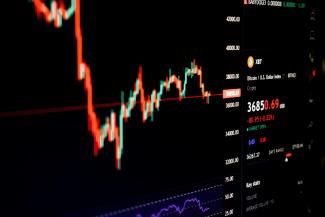
Will the stock market crash again?
Predicting whether the stock market will crash is impossible. While financial analysts and economists constantly monitor for signs of a potential downturn, no one can accurately forecast the timing or severity of a market crash. The financial world is highly complex, and crashes are often the result of multiple, interconnected factors that converge unexpectedly.
However, we can learn from history and identify common themes and triggers that have led to past market crashes.
What Causes a Stock Market Crash?
A market crash is a sudden, significant, and often unexpected drop in stock prices. It's not usually caused by a single event, but rather a combination of underlying vulnerabilities and a specific catalyst that triggers a wave of panic selling.
Here are some of the most common contributing factors based on historical events:
- Speculative Bubbles: When investor optimism drives asset prices far above their real value, it creates a bubble. The crash of 1929 and the Dot-com bubble of 2000 are prime examples. In these cases, a combination of easy credit, new technology, and widespread public participation fueled irrational exuberance. When the reality of overvaluation set in, the bubble burst, leading to a rapid collapse.
- Excessive Leverage: The use of borrowed money to invest (buying on margin) can amplify both gains and losses. In 1929, many investors were heavily leveraged. When the market started to decline, brokers issued "margin calls," forcing investors to sell their shares to repay their loans, which in turn accelerated the price drop. The 2008 financial crisis was similarly fueled by excessive leverage in the housing market and interconnected financial institutions.
- Economic Missteps: Policy errors by central banks or governments can destabilize the market. For instance, a central bank might raise interest rates too aggressively to combat inflation, which can choke economic growth and corporate earnings, leading to a downturn.
- Geopolitical and Social Instability: Wars, pandemics, and political crises can shake investor confidence and trigger market sell-offs. The COVID-19 pandemic in 2020 and various conflicts throughout history have all caused significant, albeit often temporary, market volatility.
- Technological Disruptions: While technology can bring great advances, it can also play a role in market instability. The use of automated trading programs in the 1987 "Black Monday" crash and high-frequency trading today can contribute to flash crashes by accelerating selling pressure.
The Current Environment
As of September 2025, there are a number of ongoing discussions and risk factors that analysts are considering:
- High Valuations: Stock valuations, particularly in the tech sector, are considered high by historical standards. While not a direct cause of a crash, high valuations make the market more susceptible to a sharp correction if corporate earnings disappoint or economic growth slows.
- Interest Rate Policy: The actions of central banks like the U.S. Federal Reserve are a major focus. The debate centers on how quickly to cut rates without reigniting inflation. Any policy misstep—cutting too soon or waiting too long—could trigger a market reaction.
- Geopolitical Events: Ongoing conflicts and trade tensions create uncertainty and can have a direct impact on global supply chains and economic stability.
- Corporate Earnings: Mixed corporate earnings reports and signs of a slowing labor market could signal a broader economic slowdown, which could put pressure on stock prices.
In summary, a stock market crash is always a possibility. However, it's a consequence of a complex interplay of factors, not a pre-determined event. History shows that markets have always recovered and reached new highs over the long term, even after the most severe downturns. For this reason, we recommend a diversified, long-term investment strategy rather than trying to time the market.
There is no guarantee that a diversified portfolio will enhance overall returns or outperform a non-diversified portfolio. Diversification does not protect against market risk.

